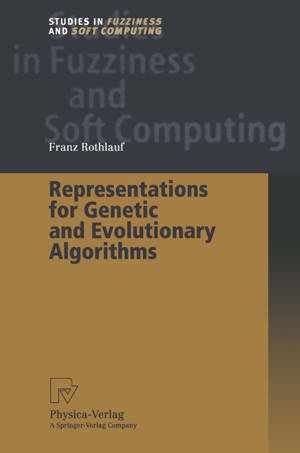
- Afhalen na 1 uur in een winkel met voorraad
- Gratis thuislevering in België vanaf € 30
- Ruim aanbod met 7 miljoen producten
- Afhalen na 1 uur in een winkel met voorraad
- Gratis thuislevering in België vanaf € 30
- Ruim aanbod met 7 miljoen producten
Representations for Genetic and Evolutionary Algorithms
Franz RothlaufOmschrijving
In the field of genetic and evolutionary algorithms (GEAs), much theory and empirical study has been heaped upon operators and test problems, but problem representation has often been taken as given. This monograph breaks with this tradition and studies a number of critical elements of a theory of representations for GEAs and applies them to the empirical study of various important idealized test functions and problems of commercial import. The book considers basic concepts of representations, such as redundancy, scaling and locality and describes how GEAs'performance is influenced. Using the developed theory representations can be analyzed and designed in a theory-guided manner. The theoretical concepts are used as examples for efficiently solving integer optimization problems and network design problems. The results show that proper representations are crucial for GEAs'success.
Specificaties
Betrokkenen
- Auteur(s):
- Uitgeverij:
Inhoud
- Aantal bladzijden:
- 290
- Taal:
- Engels
- Reeks:
- Reeksnummer:
- nr. 104
Eigenschappen
- Productcode (EAN):
- 9783642880964
- Verschijningsdatum:
- 18/04/2012
- Uitvoering:
- Paperback
- Formaat:
- Trade paperback (VS)
- Afmetingen:
- 156 mm x 234 mm
- Gewicht:
- 435 g

Alleen bij Standaard Boekhandel
Beoordelingen
We publiceren alleen reviews die voldoen aan de voorwaarden voor reviews. Bekijk onze voorwaarden voor reviews.











